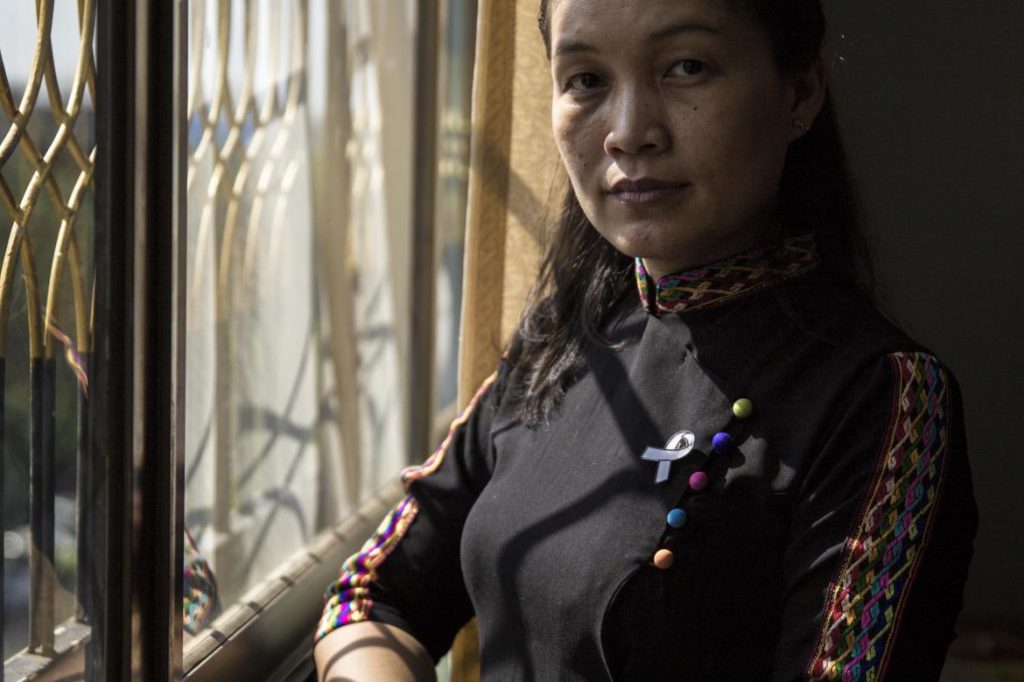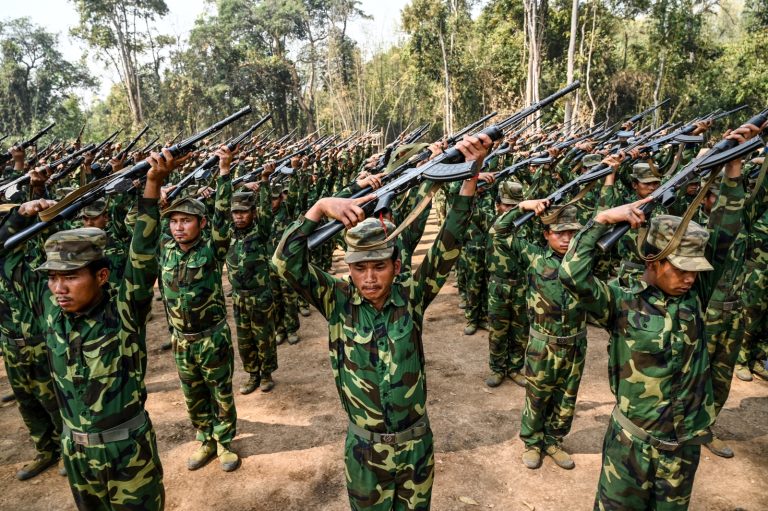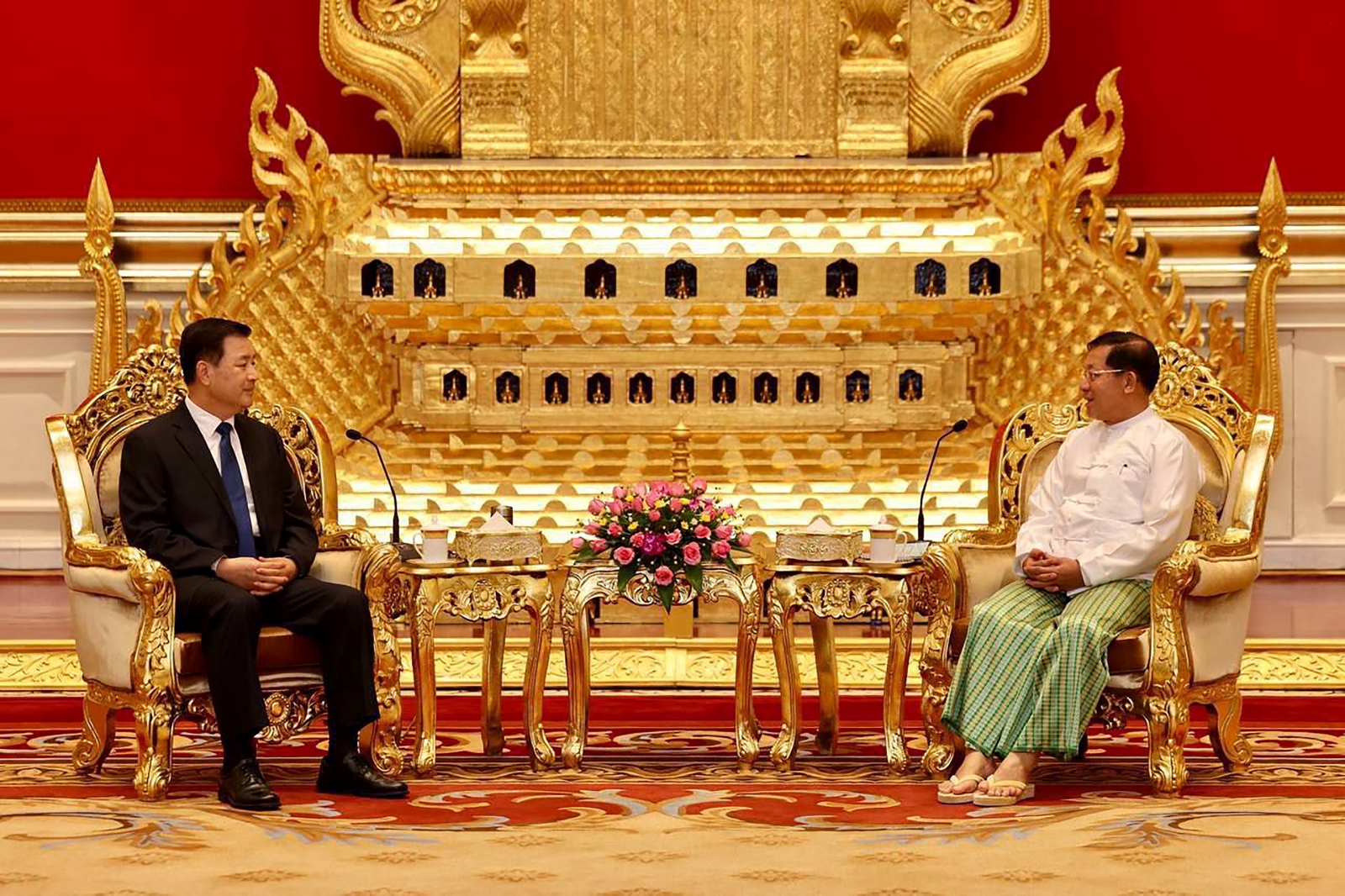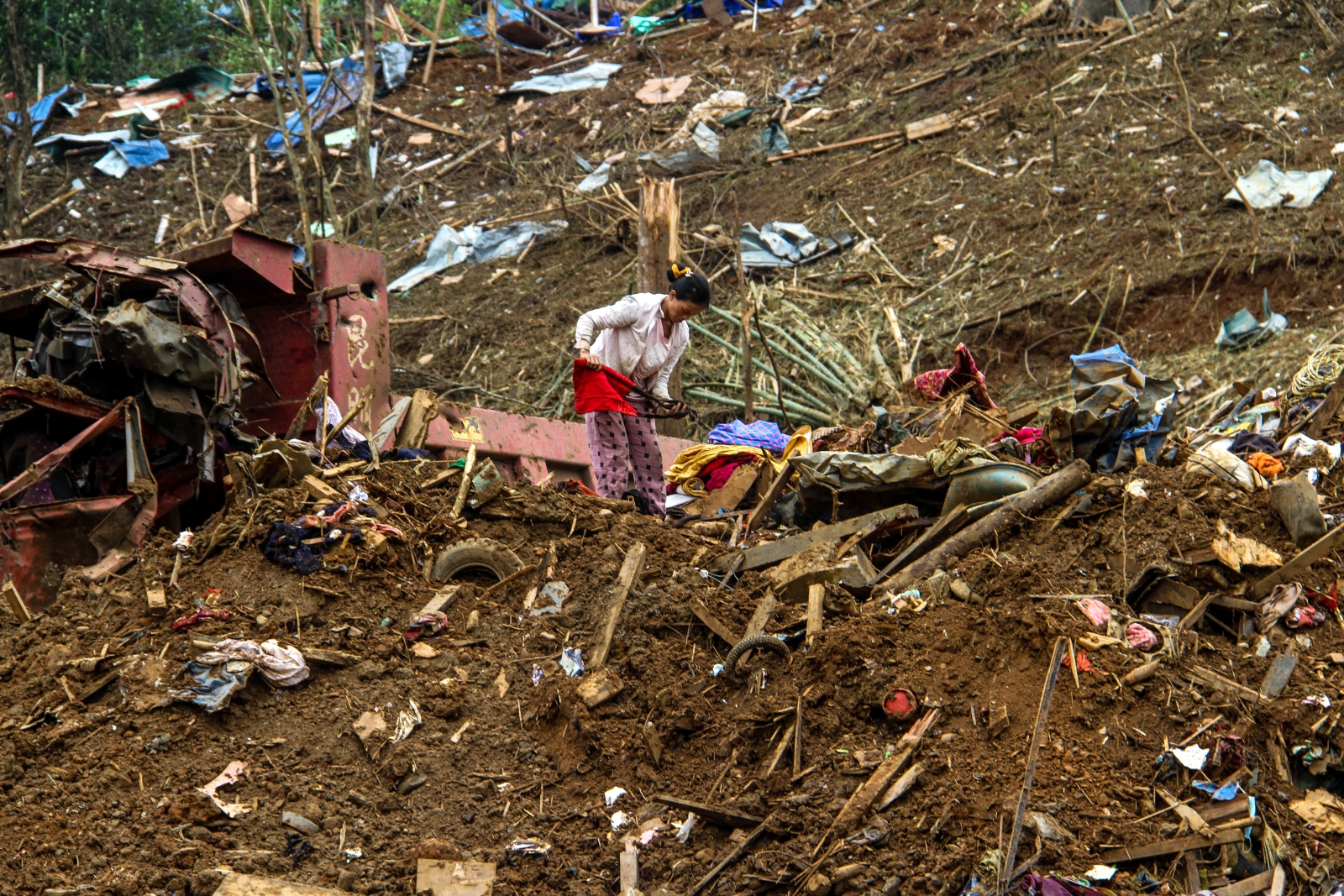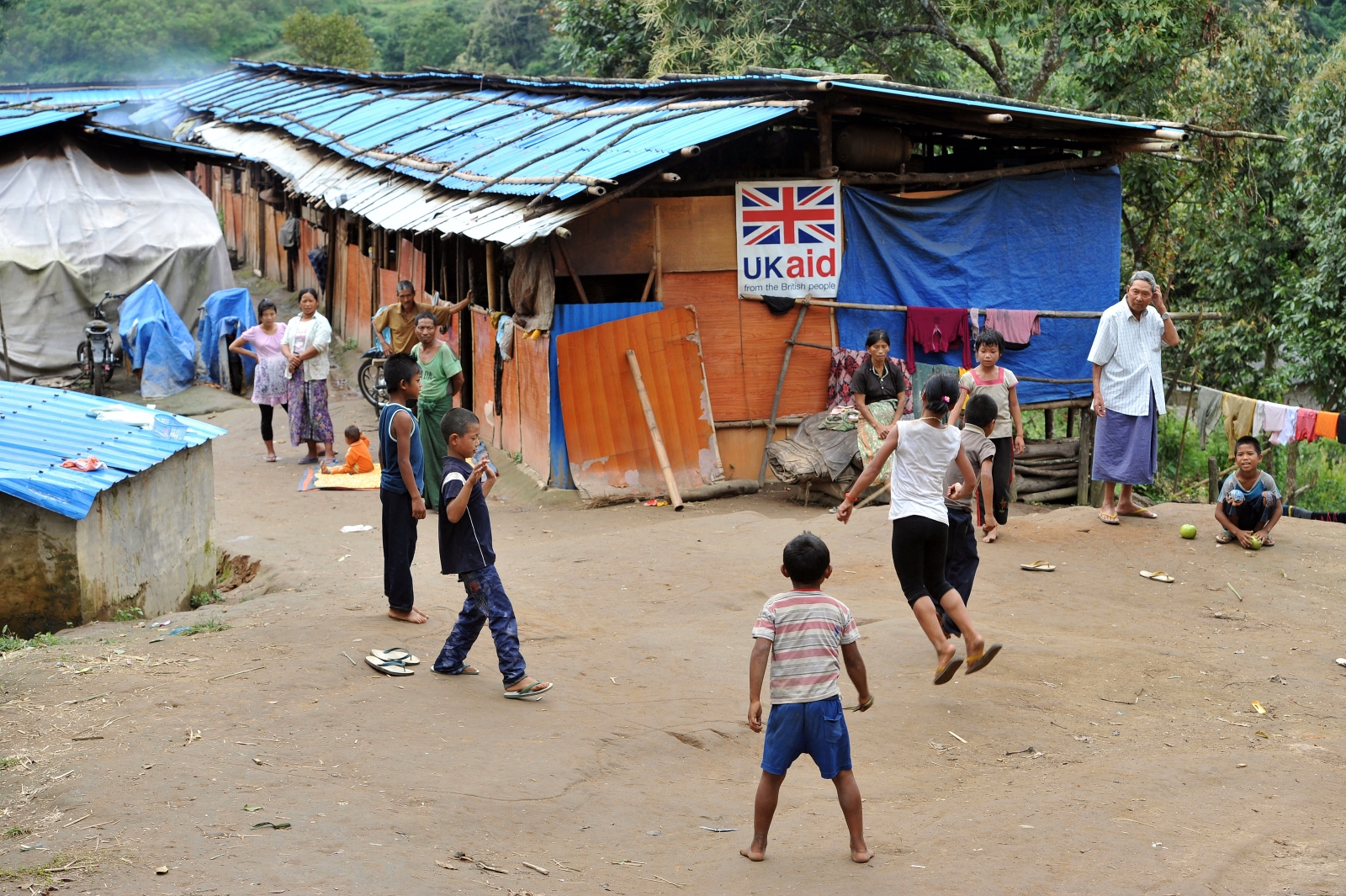Kachin activist Daw May Sabe Phyu has campaigned on issues ranging from ethnic and gender equality to the rights of the disabled, but her latest struggle has been personal.
By OLIVER SLOW | FRONTIER
It has been a tough few weeks for Kachin activist May Sabe Phyu, but when we meet at her office days after the election, a weary smile was etched on her face.
Daw May Sabe Phyu’s career as a human rights activist began before Myanmar began its transition to democracy. She has been involved in campaigns promoting freedom of expression, peace, the rights of the Kachin and gender equality. Her most recent battle has been deeply personal.
Last month, her husband, Kachin humanitarian U Patrick Khum Jaa Lee, was arrested on defamation charges. He is accused of sharing a photo on Facebook of a man in a Kachin longyi stepping on a portrait of Tatmadaw Commander-in-Chief Senior General Min Aung Hlaing.
“Actually, he did not share this post,” Daw May Sabe Phyu said. “One of his friends shared the photo and he commented under it, warning his friend to be careful. A few days later his Facebook account was hacked and the photo and comment posted on his page,” she said.
Support more independent journalism like this. Sign up to be a Frontier member.
U Patrick Khum Jaa Lee has been charged under section 66(d) of the 2013 Telecommunications Law, which carries a maximum penalty of three years in jail. At his most recent hearing on November 13 he was denied bail and May Sabe Phyu says she is concerned about his health.
“He is still in the prison hospital because his blood pressure is high and has swelling on his leg. He is very depressed and we are praying for his health,” she said.
Watchdog groups, most notably Amnesty International, regard U Patrick Khum Jaa Lee as a political prisoner and have called for his release.
When election results showed that the National League for Democracy was heading for victory the party said it would make the release of political prisoners a priority.
“A lot of people are talking about the release of political prisoners, but in my opinion this cannot happen within a month,” said Daw May Sabe Phyu. “In particular, I am very, very concerned for the students who are on hunger strike,” she said. She was referring to some of the students arrested during the crackdown at Letpadan in March who have gone on hunger strike in Tharrawaddy prison in support of a demand for their immediate and unconditional release.
“While we are all so happy and excited about the result of this election, the students who are on hunger strike, if anything happens to them, it will be a great shame for the country,” she said.
Daw May Sabe Phyu said she was optimistic about the implications of the NLD’s victory for the nation’s future but added that they would not become clear for months.
“It’s too early to say what will happen based on our previous experience,” she said, referring to the 1990 election when the government refused to recognise the NLD’s landslide victory. “We have to wait and see what happens in the next two to three months. The best case scenario would be for the NLD to have positive dialogue with the military and try to balance the power.”
She said the biggest challenges facing the new government would be changes to the 2008 constitution, extreme nationalism and national reconciliation.
“Unless the NLD can have positive dialogue with the ethnic parties and ethnic armed groups, it [national reconciliation] will be difficult I think.”
One of the surprises of the election was how well the NLD performed in ethnic minority areas Daw May Sabe Phyu said the party had much to do to forge strong ties with ethnic groups.
“At the moment we don’t have much choice,” she said. “We only have choice A and B, and the majority of us don’t like A – the military – so we have to vote for B because we don’t have C. So whether we like it or not, we vote for NLD because we want some changes. We will wait to see what changes the NLD bring, but it should seriously think about how to make an alliance with the ethnic parties, otherwise this victory will not last long.”
As well as her political activism, Daw May Sabe Phyu is a vocal campaigner for women’s rights and is director of the Gender Equality Network. Despite some improvements, she says gender equality remains a major issue in Myanmar.
“People say we have [gender] equality in Myanmar, but they are comparing us to other countries,” she said. “It is not about comparing with other countries, you have to look at your situation and your environment. Women are more than 50 percent in this country, but look at parliament or in governance and very few women are taking up positions.”
Early indications from the election are that women will play a bigger role in the next parliament, but May Sabe Phyu said there is much room for improvement.
“Compared to the last 40 years, of course we have had progress,” she says. “But when we are talking about progress, what do you mean? Zero to one? Zero to ten? Or zero to fifty? Of course we have improved, but compare it to the population in the country and women have been left behind. That has to change.”


